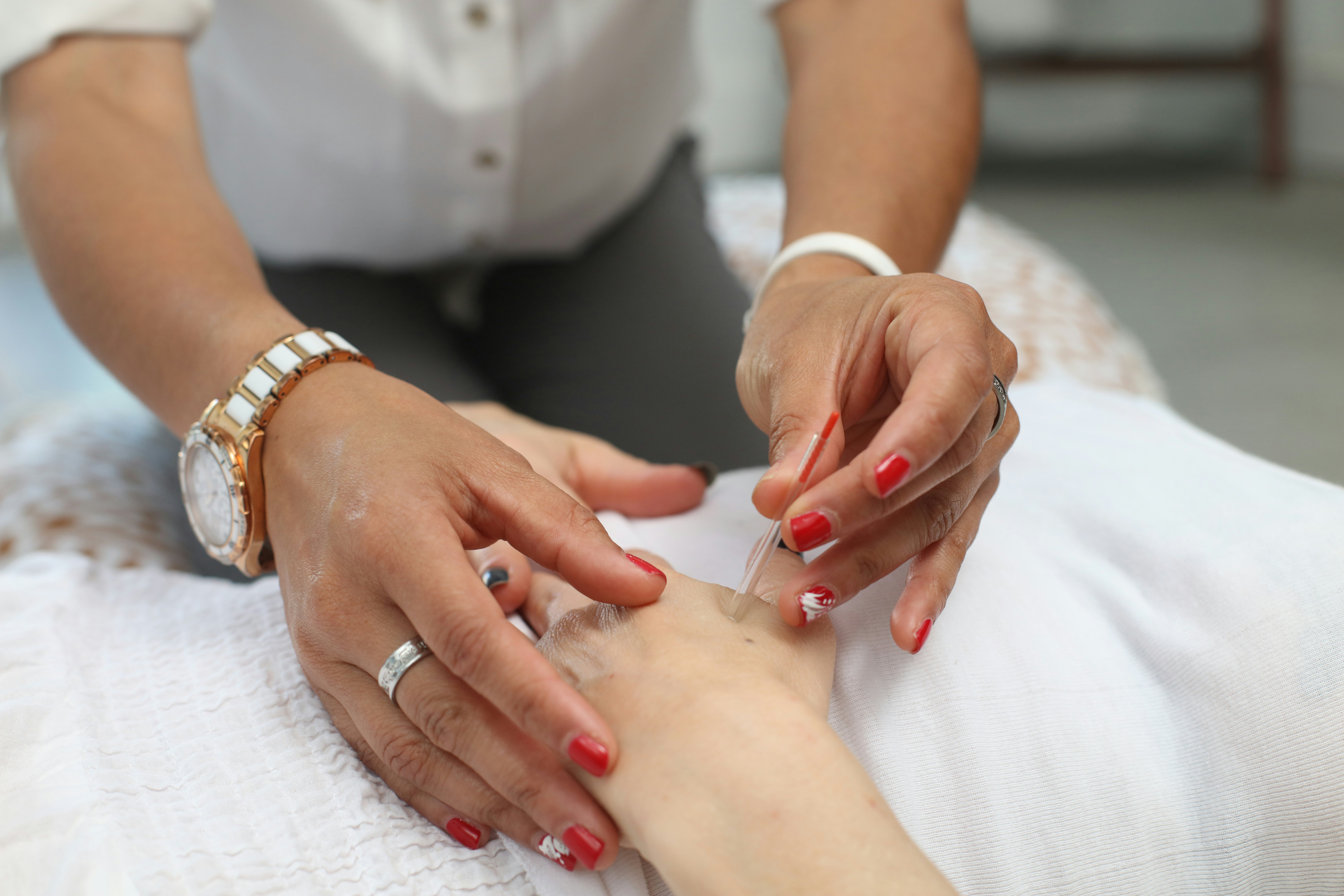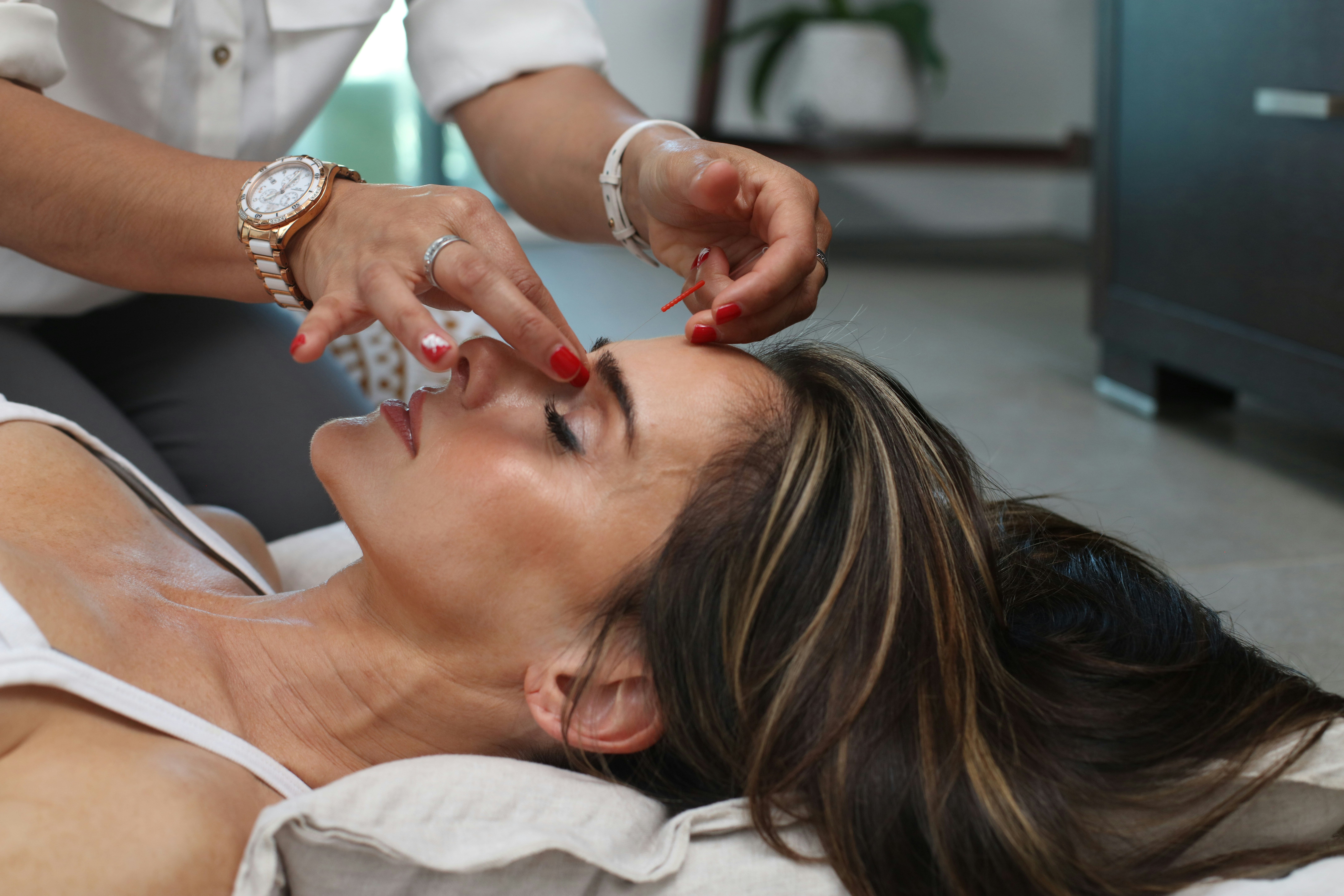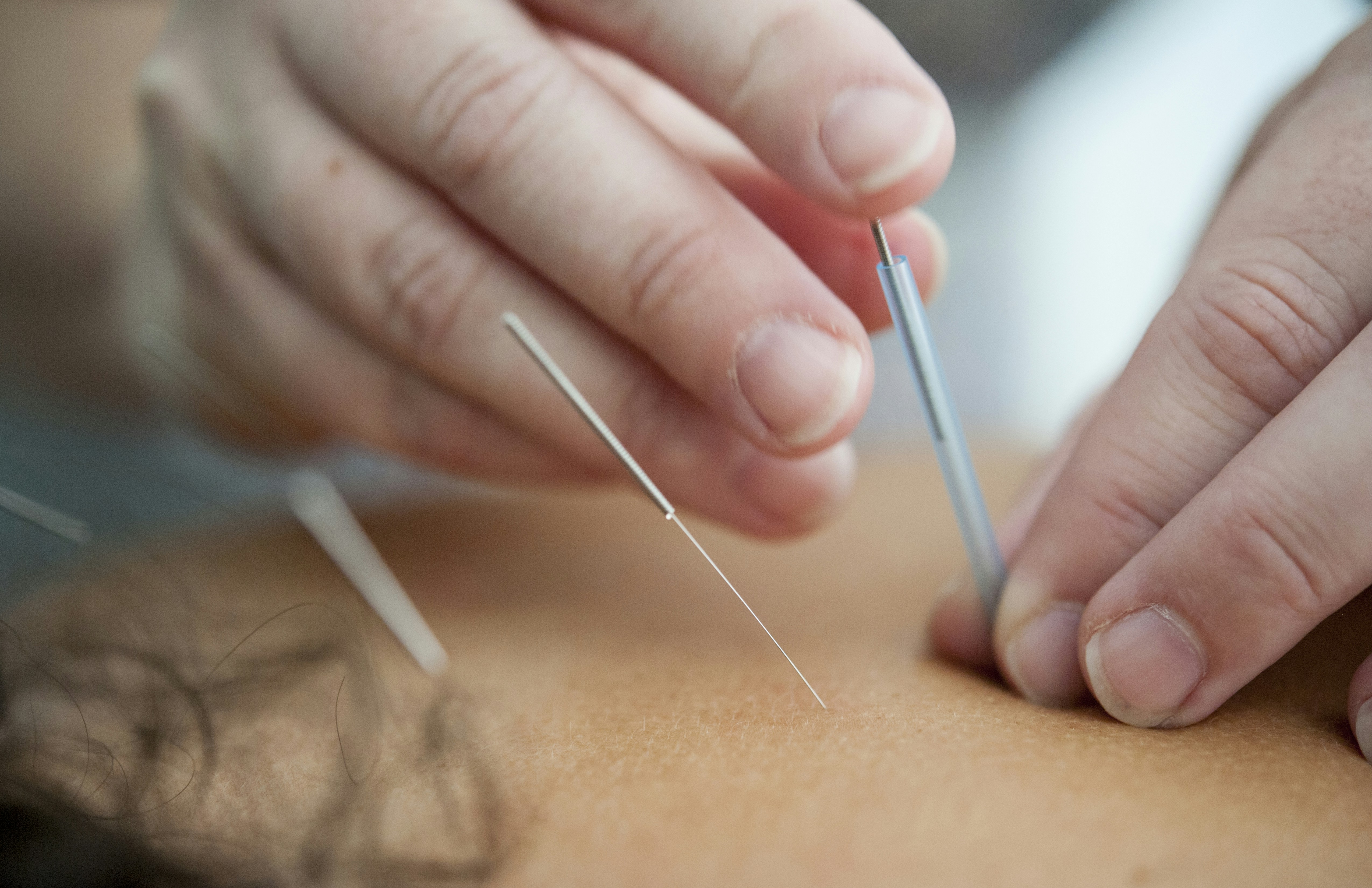Discover how acupuncture can help relieve neck pain. Learn about the different techniques, benefits, and possible side effects in this informative post.
In this article, you will learn about a potential solution for relieving neck pain – acupuncture. We will explore how acupuncture works and its benefits in treating neck pain. You will discover the different acupuncture techniques used, and the possible side effects. By the end of this article, you will have a better understanding of how acupuncture may be an effective option in alleviating your neck pain.
Relieving Neck Pain with Acupuncture
What is Acupuncture?
Definition of acupuncture
Acupuncture is a traditional Chinese medicine practice that involves the insertion of thin needles into specific points on the body. This ancient technique is said to restore the balance of energy, or qi, within the body, promoting physical and emotional well-being.
History of acupuncture
Acupuncture has been practiced for over 2,500 years and is an integral part of traditional Chinese medicine. It is believed to have originated in China and spread to other parts of Asia and eventually the Western world. Today, acupuncture is recognized as an effective treatment for a range of conditions, including neck pain.
How acupuncture works
According to traditional Chinese medicine, acupuncture works by stimulating specific points along energy pathways, known as meridians, in the body. This stimulation is believed to restore the flow of qi and promote healing. In Western medicine, acupuncture is thought to stimulate the release of endorphins, which are natural painkillers, and activate the body’s natural healing response.
Understanding Neck Pain
Causes of neck pain
Neck pain can be caused by a variety of factors, including muscle strain, poor posture, whiplash, herniated discs, and degenerative conditions such as arthritis. Stress and tension can also contribute to neck pain, as can underlying medical conditions such as fibromyalgia or spinal stenosis.
Common symptoms of neck pain
Neck pain can manifest as a dull ache, sharp pain, or stiffness in the neck and shoulders. It may also be accompanied by headaches, numbness or tingling in the arms or hands, and limited range of motion. In severe cases, neck pain can interfere with daily activities and greatly impact quality of life.
Effects of untreated neck pain
If left untreated, neck pain can worsen over time and lead to chronic pain and disability. It can also cause secondary problems such as muscle spasms, pinched nerves, and tension headaches. The emotional toll of chronic neck pain, including stress, depression, and sleep disturbances, should not be underestimated.
Acupuncture for Neck Pain Relief
Benefits of acupuncture for neck pain
Acupuncture has shown promising results in relieving neck pain by targeting the underlying causes of the pain. It can help to relax tense muscles, improve blood flow to the affected area, and reduce inflammation. Additionally, acupuncture has been found to promote relaxation and improve sleep, which can further contribute to pain relief.
Acupuncture techniques for neck pain
During an acupuncture session for neck pain, fine needles are inserted into specific points along the meridians that run through the neck and shoulders. The acupuncturist may also use other techniques such as electroacupuncture, where a small electric current is applied to the needles, or cupping, which involves creating a suction effect using glass or plastic cups. These techniques are used to enhance the therapeutic effects of acupuncture and provide targeted relief.
Safety and effectiveness of acupuncture
Acupuncture is generally considered safe when performed by a qualified and experienced acupuncturist. The needles used are single-use and sterile, minimizing the risk of infection. As with any medical treatment, there can be minor side effects such as temporary soreness or bruising at the needle insertion sites. However, serious complications are rare when acupuncture is administered correctly.
Research and Studies
Scientific studies on acupuncture for neck pain
Numerous scientific studies have examined the effectiveness of acupuncture for neck pain. A meta-analysis published in the Journal of Pain in 2009 concluded that acupuncture is a safe and effective treatment option for chronic neck pain. Other studies have shown that acupuncture can provide significant pain relief and improve quality of life in individuals with acute and chronic neck pain.
Comparison of acupuncture with other pain relief methods
When compared to conventional treatments such as medication and physical therapy, acupuncture has been found to be equally or more effective in relieving neck pain. A study published in the Annals of Internal Medicine in 2012 found that acupuncture provided better pain relief and improved function in individuals with chronic neck pain compared to standard care.
Testimonials from patients
Many individuals who have undergone acupuncture for neck pain have reported positive experiences and significant pain relief. Patients often describe feeling relaxed and experiencing a reduction in pain and stiffness after acupuncture sessions. However, it is important to note that individual results may vary, and acupuncture may not be suitable for everyone.
Preparing for an Acupuncture Session
Choosing a qualified acupuncturist
When seeking acupuncture for neck pain relief, it is important to choose a qualified and licensed acupuncturist. You can ask for recommendations from your primary care physician, friends, or family members who have undergone acupuncture. It is also advisable to check the acupuncturist’s credentials and inquire about their experience treating neck pain specifically.
Initial consultation and assessment
During the initial consultation, the acupuncturist will assess your medical history, symptoms, and overall health. They may also conduct a physical examination to determine the underlying causes of your neck pain. This information will help them develop a personalized treatment plan tailored to your specific needs.
What to expect during the session
During an acupuncture session, you will typically lie comfortably on a treatment table. The acupuncturist will gently insert thin needles into the designated acupuncture points on your neck, shoulders, and possibly other parts of your body. You may experience a mild tingling or a dull ache at the needle insertion site, but the procedure is generally painless and well-tolerated.
Acupuncture Procedure for Neck Pain
Needle insertion and pain perception
The needles used in acupuncture are incredibly thin and flexible, minimizing discomfort during the procedure. While some individuals may experience a slight sensation upon needle insertion, the overall pain perception is usually minimal. The acupuncturist may also adjust the depth and angle of insertion depending on your specific needs.
Duration and frequency of acupuncture sessions
The duration and frequency of acupuncture sessions for neck pain can vary depending on the severity and underlying causes of the pain. Typically, a course of treatment consists of several sessions over a few weeks, with each session lasting 30 to 60 minutes. It is important to follow the acupuncturist’s guidance regarding the recommended number of sessions for optimal results.
Additional therapies and techniques used
In addition to acupuncture, your acupuncturist may incorporate other therapies and techniques to enhance the effects of treatment. These may include cupping, acupressure, massage, or herbal remedies. The specific therapies recommended will depend on your individual needs and preferences.
Possible Side Effects and Risks
Temporary soreness or bruising
Minor side effects of acupuncture can include temporary soreness or bruising at the needle insertion sites. These side effects are usually mild and resolve quickly on their own. If you experience persistent or severe pain or any other concerning symptoms, it is important to contact your acupuncturist.
Potential infection or bleeding
When performed by a trained professional using sterile needles, the risk of infection or bleeding from acupuncture is extremely low. However, it is important to ensure that your acupuncturist follows strict sterilization procedures and uses disposable needles to minimize any potential risks.
Precautions and contraindications
While acupuncture is generally safe for most individuals, there are certain situations where it may not be recommended. If you are pregnant, have a bleeding disorder, or have a compromised immune system, it is important to consult with your healthcare provider before undergoing acupuncture. Additionally, if you have any open wounds or skin infections, it is advisable to postpone acupuncture until the condition resolves.
Tips for Enhancing the Effects of Acupuncture
Lifestyle and dietary recommendations
In addition to acupuncture, certain lifestyle and dietary modifications can help enhance the effects of treatment for neck pain. Engaging in regular physical exercise, maintaining a healthy weight, and practicing stress management techniques can all contribute to improved overall well-being and reduced neck pain. Additionally, incorporating anti-inflammatory foods into your diet, such as fruits, vegetables, and omega-3 fatty acids, can help reduce inflammation and promote healing.
Posture correction and ergonomics
Correcting poor posture and practicing good ergonomics can go a long way in preventing and alleviating neck pain. It is important to maintain proper alignment of the head, neck, and shoulders during activities such as sitting and standing. Using supportive pillows and ergonomic chairs or equipment can also help reduce strain on the neck and promote proper alignment.
Physical exercises and stretches
Specific exercises and stretches can help strengthen the neck muscles and improve flexibility, reducing the risk of neck pain. Gentle neck exercises, such as neck rolls and side bends, can be incorporated into your daily routine to help alleviate tension and promote good neck health. However, it is important to consult with your acupuncturist or a physical therapist before starting any new exercise program, especially if you are experiencing neck pain.
Comparison with Conventional Treatment Options
Medication and painkillers for neck pain
Conventional treatment options for neck pain often involve the use of medication and painkillers to alleviate symptoms. While these medications can provide temporary relief, they do not address the underlying causes of the pain. Additionally, long-term use of certain pain medications can have side effects and potential risks.
Physical therapy for neck pain
Physical therapy is commonly recommended for individuals with neck pain to improve range of motion, strengthen muscles, and promote postural alignment. While physical therapy can be effective, it often requires multiple sessions over an extended period of time. Acupuncture, on the other hand, can provide more immediate relief and can be used in conjunction with physical therapy for enhanced results.
Surgical interventions for neck pain
In severe cases of neck pain caused by structural issues, surgical interventions may be necessary. However, surgery is typically reserved as a last resort when conservative treatment options such as acupuncture and physical therapy have failed to provide relief. Acupuncture can be a valuable alternative or adjunct to surgery, helping to manage symptoms and potentially avoid the need for invasive procedures.
Conclusion
Acupuncture is a safe and effective treatment option for relieving neck pain. With its long history and growing body of scientific evidence, acupuncture has gained recognition as a valuable holistic approach to managing neck pain. While individual results may vary, many individuals have reported significant pain relief and improved quality of life after undergoing acupuncture. By choosing a qualified acupuncturist and incorporating additional lifestyle modifications, you can enhance the effects of treatment and experience long-term benefits for your neck pain. So don’t let neck pain limit your daily activities and well-being. Consider exploring the potential benefits of acupuncture and take the first step towards a pain-free neck.




